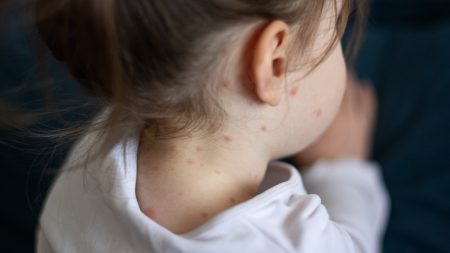Bird Flu Outbreak in the U.S.: Understanding the Risks and Safeguards
As the H5N1 bird flu virus continues to spread across the United States, concerns have grown about the potential risks of contracting the virus through everyday food items like milk and eggs. Over 150 million poultry birds have been culled to curb the outbreak, leading to soaring egg prices and limited supply. Additionally, the virus has affected hundreds of dairy cow herds, with reports of bird flu fragments being detected in milk products. While health experts reassure the public that the risk of contracting bird flu from store-bought milk or eggs remains low, it’s important to understand the measures in place to ensure food safety and the steps individuals can take to mitigate any potential risks.
Low Risk from Commercial Eggs in Grocery Stores
Commercial eggs available in grocery stores pose a minimal risk of transmitting bird flu. According to government regulations, eggs processed and graded by the U.S. Department of Agriculture (USDA) must be washed and sanitized to remove germs from the shell. Additionally, some eggs are pasteurized, a process approved by the U.S. Food and Drug Administration (FDA), further reducing the risk of contamination. Even in the unlikely event that bird flu infects an egg, the normal cooking process would kill the virus, making raw or undercooked eggs the only theoretical risk. Health experts emphasize that flocks are closely monitored for bird flu, and eggs from infected flocks are removed from circulation.
Pasteurized Milk is Safe, but Raw Milk Poses a Risk
Pasteurized milk and dairy products are considered safe due to the pasteurization process, which involves heating liquids to a high temperature for a short time to eliminate harmful viruses and bacteria. While fragments of the bird flu virus were detected in some pasteurized milk samples in April 2024, these fragments were inactive and incapable of causing infection. However, unpasteurized, or raw, milk is a different story. The FDA has long warned about the dangers of consuming raw milk, which bypasses the pasteurization process. With the current outbreak, raw milk contaminated with the bird flu virus could pose a significant health risk, as it contains high concentrations of the virus. While no human illnesses linked to raw milk consumption have been reported, experts caution against drinking unpasteurized dairy products.
Freezing Does Not Kill Bird Flu
Freezing is not an effective method for killing the H5N1 bird flu virus. Many pathogens, including H5N1, can survive at freezing temperatures, meaning that frozen milk, eggs, or meat may still harbor the virus. Health experts compare this to travel advisories that warn against consuming ice cubes made from untreated water, as freezing does not eliminate bacteria or viruses. This underscores the importance of relying on proven methods like pasteurization and proper cooking to ensure food safety.
Conclusion: Reassurance and Practical Precautions
While the risk of contracting bird flu from store-bought eggs or pasteurized milk is extremely low, it’s important to remain informed and take sensible precautions. By opting for pasteurized dairy products and ensuring eggs are cooked thoroughly, consumers can further reduce any potential risk. Additionally, avoiding raw milk and understanding that freezing does not kill the virus are key steps in maintaining food safety. The measures in place, including widespread flock monitoring and pasteurization, provide robust safeguards against the spread of bird flu through food products.
This outbreak highlights the interconnectedness of animal health, food systems, and public safety. While the situation is serious for the poultry and dairy industries, the general public can take comfort in the knowledge that the risks are well-managed, and simple precautions can help ensure continued safety.















